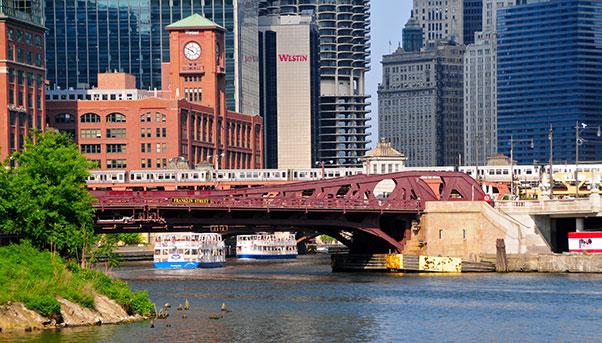
«Trump’s project for a significant upgrade of America’s infrastructure apparatus was one of the best parts of the president’s economic plan — I dare say, one of the few positive things», Eric S. Maskin, a Harvard economist and winner of the Nobel Prize in Economics for his contribution to laying the foundations of mechanism design theory, says in an interview with We Build Value. «It will be difficult to get Congress to approve the legislation and funding needed to realize the plan». But he does not see it as being impossible, with a solution being found one way or another for the good of the country.
Why would Congress block the president’s infrastructure programme?
«It’s obvious that there’s an urgent need in America for infrastructure renewal — ports, airports, streets, tunnels, highways, dams, aqueducts — it’s in front of everyone’s eyes…
Each individual project needs Congressional approval… The Republican Party, the traditional party I mean, not the one that Trump brought to power, has always resisted committing public resources. Trump knows this and to implement his $1 trillion investment project, an ambitious goal that would really make a mark, he’s looking for new avenues… The president wants to involve the private sector in investments. But here the conflict is with the Democrats, who suspect that behind this plan lurks a desire to enrich large developers… So it’s a kind of labyrinth. However, like a labyrinth, there is a way out. It exists, so it can’t be excluded that it might be discovered, in the interest of America».
What might be the possible solution?
«The fact that it requires a distribution of public resources is beyond doubt. One example I always give students is that of a mother who must divide slices of cake among her children. Her goal is to make all her children happy but each of them will accuse the other of getting a bigger piece. And the mother never manages to find a way out, a solution. In the end, she has one child cut the cake and the others chose the pieces, thinking they’ve made the right choice. Basically, the parable means simply that all interested parties must be involved in the operation and in such a way that each of them — industry, developers, central and regional administrators, service companies, concessionaires — are satisfied, believing the cake has been distributed equally, honestly and without any ulterior motives. A solution, I repeat, can be found».
The reforms being pursued by the Trump administration touches a number of fronts and not just infrastructure. One of them is protectionism. Does globalization still have an impact on economic development?
«Currently, I am working on the topic of globalization, because it’s rather paradoxical that a phenomenon created to spread jobs and wealth has, instead, ended up fueling inequality, discontent, even war. In this case, as in preceding ones, it’s an issue of perspective, of choosing how to view the situation. And of finding equitable solutions.
Some nations have succeeded in reducing the gap between those who have too much and those who have too little. But in others the differential has been accentuated, with intolerable consequences. One of the possible conclusions is that inequality grows where educational and professional training diminishes. For example, in 1995, Mexico belonged to what was then called GATT (General Agreement on Tariff and Trade), later the WTO. All went well for the first five years — really until the start of the new century — as it helped reduce tariffs, customs duties and other roadblocks to trade from and to Mexico by 50%. Many benefitted and salaries of white-collar workers rose, on average, 30% — also in the first five years — due to increased competition from imported cars and equipment. But, at the same time, the paychecks of blue-collar workers remained stuck. Does that seem like an ethically acceptable situation to you?».

Certainly not. However, it should also be noted that development and economic growth in Mexico, to stick with your example, experienced a major acceleration. So what should Mexican workers do?
«If they could study, they would be more prepared, aspire to more, to enjoy the benefits of globalization. This isn’t just about the magic of buying a cell phone created in California and assembled in China but must be a more widespread improvement in the life conditions of everyone. Many promises were made in the name of globalization, particularly in poor countries. And the reality is that it generally worked pretty well for many, think of India and China. But the truth is that even in China there are outbreaks of political protest against the governing elite for the defects of globalization. That should make us reflect on the criteria, still to be defined, that will allow everyone to truly enjoy the benefits of a united world. We live on a planet where telecommunications cost virtually nothing. I’m in New York, when I contact Motorola, someone in Bangalore answers my call and is perfectly able to help me — but where real communications still need to improve».
One of the best ways, you were saying, is to make education as widely available as possible.
«Some 38% of African adults are illiterate, with areas in certain nations hitting 50%. A person who is deprived of an adequate education is inevitably excluded from the process of globalization. Therefore, governments of developing nations first of all, but also industrialized ones, must concern themselves with the education and training of their people. There’s been some success on this front; in 1970, 30% of South American children went to elementary school. Today it’s 88%. Improving in education, I want to emphasize, can’t be left to the free market or to companies, but must be overseen by governments and international organizations. The fact is, the current wave of globalization is very different than the preceding one».
There were others?
«Certainly, one every century starting with the Roman Empire. The globalization we have today is very different than that of the first half of the 19th century, which was marked by colonialism, or of the early years of the 20th century, when, on the eve of the First World War, there was widespread prosperity. Back then, in the poorest nations in the world, great masses of people were hired with little or no education to work in fields, factories and mines. The globalization of the 21st century is another thing entirely. Technological preparation is a requirement, the standards of selection have been raised. It’s what economists call “skill bias,” a prejudice against someone without education. It’s necessary to function at a high level to become a part of the conceptualization of a product in Europe, its construction in Malaysia, its sale in America. A person who hasn’t studied is left out of the production process and sees his status slip irreparably farther away from someone else who was more fortunate and who managed to receive an adequate education. So inequality is accentuated. It’s not a mistake to call it a failure of the process of globalization. And anyone who seeks a more just and equitable society must fight against this».

